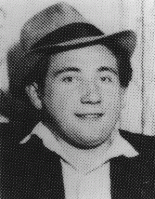You searched for: ���������������nba������������AG������������qee9.com���TuW
<< Previous | Displaying results 201-225 of 372 for "���������������nba������������AG������������qee9.com���TuW" | Next >>
-
Julius (Julo) Levin
ID CardJulo was born to a Jewish family in the city of Stettin in northeastern Germany. From an early age Julo showed an interest in art; at 6 he had collected more than 3,000 pictures. His family hoped he would become a businessman, but his interest in painting absorbed all his energy. In 1926 he graduated from art school and by 1931 he secured his first commission in Duesseldorf. 1933-39: Until the Nazis came to power in 1933, Julo was a highly regarded artist. The Nazis' strict interpretation of art, however,…
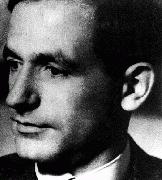
-
Alice Lok
ID CardAlice grew up in a Jewish family in Sarvar, Hungary, near the Austrian border. She had two younger brothers and an older sister. Her father worked for the family's carpet weaving and import/export business and was often away, traveling to their Budapest office. Alice's grandfather was a community leader and president of one of Sarvar's synagogues. 1933-39: Alice had a very special relationship with her grandfather. She admired him. People knew that they could always come to him for help of any kind. He…
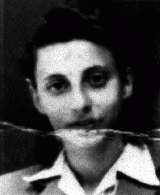
-
Kato Dicker Nagy
ID CardThe fourth of five children, Kato was born to a Jewish family who owned a successful furniture store and lumberyard in Ujpest, five miles from Budapest. As a young girl, Kato enjoyed singing and playing the violin in her family "orchestra" in their large home. She was also athletic, and loved to swim, bicycle and play tennis. Best of all, Kato enjoyed rowing on the Danube with her friends. 1933-39: Newly married, Kato moved to Zagyvapalfalva, a town northeast of Budapest with only five or six Jewish…
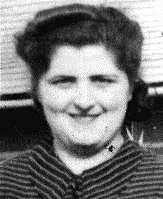
-
Magda Rein
ID CardMagda was the oldest of two children born to observant Jewish parents. They lived in Satoraljaujhely, a town in northeastern Hungary on the Czechoslovakian border. Jews represented some 20 percent of the town's approximately 18,000 persons. Magda's father owned a bakery; her mother was a midwife. 1933-39: At 10 years of age, Magda began accompanying her mother when she attended to births nearby. Her mother helped all women--Jews, Roma (Gypsies) and peasants in the surrounding villages. When Magda was 12,…
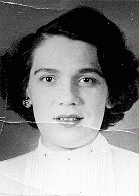
-
Wolfgang Lachman
ID CardWolfgang was the only son of observant Jewish parents living in Berlin. Though trained as a mechanical engineer, Wolfgang's father ran a wholesale kerchief and handkerchief business that he had taken over from his father-in-law. Wolfgang's family lived in an apartment above the business. They enjoyed vacationing at their country home in Neuenhagen, a suburb of Berlin. 1933-39: Wolfgang began school when he was 5; that year Hitler was named leader of Germany. Every morning they had to sing three songs: the…
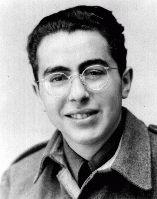
-
Jenine Gutman
ID CardJenine was the younger of two daughters born to Jewish parents. They lived in a small city with a large Jewish population in central Moldavia. Her father, a veteran of World War I, came from a large family and Jenine had more than 15 aunts and uncles, all living in Bacau. This extended family helped raise Jenine and her sister Sofia while their parents ran a grocery store. 1933-39: Just like every child her age, Jenine belonged to a national youth organization headed by Prince Michael. They wore special…
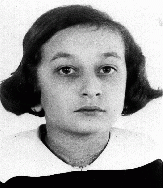
-
Hanandel Drobiarz
ID CardHanandel was raised with his three brothers and sisters in the town of Kozlow, where his family sold grain and livestock. The family was religious, and they observed the Sabbath and all Jewish holidays and dietary laws. When Hanandel was 5, he began studying Hebrew, the Bible, prayers, and Jewish history. 1933-39: At age 14 Hanandel was apprenticed to his uncle in Sosnowiec as a tinsmith. He worked for his uncle during the day and attended trade school at night. When he graduated from trade school he…
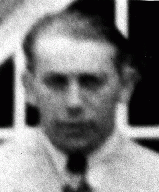
-
Shulamit Perlmutter (Charlene Schiff)
ID CardShulamit, known as Musia, was the youngest of two daughters born to a Jewish family in the town of Horochow, 50 miles northeast of Lvov. Her father was a philosophy professor who taught at the university in Lvov, and both of her parents were civic leaders in Horochow. Shulamit began her education with private tutors at the age of 4. 1933-39: In September 1939 Germany invaded Poland, and three weeks later the Soviet Union occupied eastern Poland, where Shulamit's town was located. Hordes of refugees…
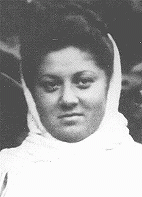
-
Channa Morgensztern
ID CardChanna and her husband and five children lived 35 miles east of Warsaw in the small predominantly Jewish town of Kaluszyn. Channa's husband, Jankel, was employed as a clerk in the town hall. After Channa's children reached school age, she helped her mother run a newspaper kiosk in town. 1933-39: Germany has invaded Poland, and Channa's hopes that Kaluszyn wouldn't be in the line of fire have been shattered. First, a German plane flew over their town and dropped a bomb on people waiting in line outside a…
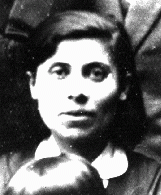
-
Lonia Goldman Fishman
ID CardLonia had three sisters and one brother. Her parents owned a cotton factory in the town of Wegrow. The Goldmans were a religious family, strictly observing the Sabbath, the Jewish holidays and the dietary laws. 1933-39: After studying all day at public school, Lonia attended a religious school for girls called Beis Yakov where she studied Hebrew, the Bible and Jewish history. Later, when she was in high school, a private tutor came to the house to teach her Hebrew. Lonia's favorite hobby was knitting.…
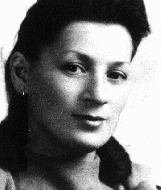
-
Thomas Buergenthal
ID CardThomas Buergenthal was born in May 1934 in the town of Ľubochňa, Czechoslovakia. His parents, Mundek and Gerda, were Jews who had fled the Nazi rise to power in Germany. In Ľubochňa, Mundek ran a hotel that welcomed other refugees and exiles fleeing Nazi persecution. 1933-39: In 1938-1939, Nazi Germany dismantled the country of Czechoslovakia and created the satellite state of Slovakia. As a result, Thomas and his family fled from Slovakia to neighboring Poland. They hoped eventually to immigrate to…
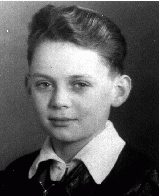
-
Ruth Freund Reiser
ID CardRuth was a child of middle-class Jewish parents living in Czechoslovakia's capital, Prague, where her father worked as a bank clerk. As native Czechs, her parents considered themselves as much Czech as Jewish. In 1933 Ruth was in her second year at a public girls' secondary school. 1933-39: The Germans occupied Prague in March 1939 and imposed many restrictions. Jews were no longer allowed to attend school, so Ruth's education stopped at age 13. Jews had to surrender many of their possessions such as…
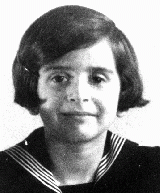
-
Itka Wlos
ID CardItka was raised in a Yiddish-speaking, religious Jewish family in Sokolow Podlaski, a manufacturing town in central Poland with a large Jewish population of about 5,000. Itka came from a poor family. After completing her public schooling in Sokolow Podlaski at the age of 14, she began to work. 1933-39: Itka was a young woman, unmarried and living with her parents when war between Germany and Poland broke out on September 1, 1939. German aircraft bombed Sokolow Podlaski's market and other civilian targets…
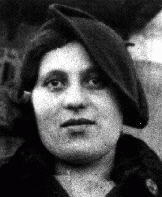
-
David J. Selznik
ID CardThe village in Lithuania where David grew up was located near the Latvian border. His father was a peddler. At age 6, David was sent to Ukmerge, a town known to Jews by its Russian name, Vilkomir, to study traditional Jewish texts at the rabbinical academy there. Six years later, David was called to return home to head the Selznik family because his father had died. 1933-39: David lost his job in 1933, so he left Lithuania and went to the United States and then Portugal. But in 1936 the Baltic states were…
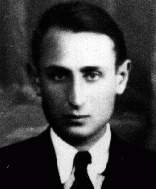
-
Welwel Rzondzinski
ID CardOne of six children, Welwel was born to Jewish parents living in the predominantly Jewish town of Kaluszyn, 35 miles east of Warsaw. His parents were religious, and they spoke Yiddish at home. Welwel's father was a bookkeeper for a large landowner. After Welwel's father died, his mother ran a newspaper kiosk in Kaluszyn. Welwel married when he was in his twenties and moved with his wife Henia to Warsaw. 1933-39: When war broke out three months ago, many Jews left Warsaw in a mass exodus towards the east.…
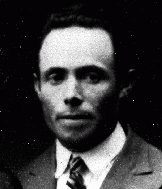
-
Ethel Stern
ID CardEthel was born to a Jewish family living in Warsaw. When she was 9, her family moved to the town of Mogielnica, about 40 miles southwest of Warsaw. Ethel's father spent much of his time studying religious texts. His wife managed the family liquor store. Ethel attended public school during the day and was tutored in religious studies in the evening. 1933-39: Ethel had always wanted to be a teacher. At age 14, after attending religious school in Lodz, she began to teach in the town of Kalisz, where her…
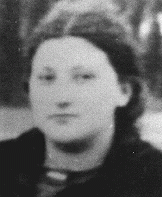
-
Yosel Coller
ID CardOne of six children, Yosel was raised in a religious Jewish family in Lodz, an industrial city in western Poland. His father was a businessman. At the age of 6, Yosel began attending a Jewish day school. His two older sisters attended public school in the morning and religious school in the afternoon. Yosel spent much of his free time playing soccer with his brothers. 1933-39: Yosel's family lived in a modest house in the northern section of Lodz. He went to a Jewish day school and had many friends there.…
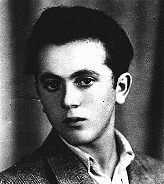
-
Benjamin Bornstein
ID CardBenjamin and his younger brother Zigmush were born to Jewish parents in the industrial city of Lodz. Lodz was Poland's second biggest city before the war, and one-third of its inhabitants were Jewish. Benjamin's father, Moshe, owned a candle factory, and his mother, Brona, was a nurse. 1933-39: In 1939, as Benjamin began the third grade, the Germans occupied Lodz. Jews were forbidden to ride buses, and were ordered to wear yellow stars. Because the Germans sometimes grabbed Jews off the streets for forced…
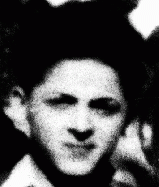
-
Herschel Rosenblat
ID CardHerschel was the youngest of three sons born to Yiddish-speaking Jewish parents. When Herschel was a child, his family moved to Radom, an industrial city which had a large Jewish population. By 1930, Herschel had finished his schooling and was helping in his father's shoemaking business. With the help of a friend, he later found a full-time job as a house painter. 1933-39: Herschel's career as a painter was interrupted for two years when he was drafted into the Polish cavalry at the age of 20. When…
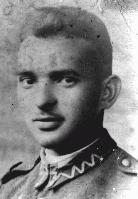
-
Gerda Blachmann
ID CardGerda was an only child of Jewish parents. They lived in Breslau, a large industrial city on the Oder River. Before World War II, Breslau's Jewish community was the third largest in Germany. Her father worked as a salesman for a large hardware and building materials company. Gerda attended public school until age 9 when she was admitted to a Catholic girls' school. 1933-39: Gerda walked through the city to see the aftermath of a pogrom. The windows of Jewish shops had been shattered. A torched synagogue…
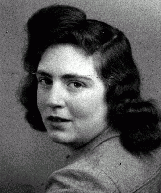
-
Joseph Muscha Mueller
ID CardJoseph was born in Bitterfeld, Germany, to Roma ("Gypsy") parents. For reasons unknown, he was raised in an orphanage for the first one-and-a-half years of his life. At the time of Joseph's birth, some 26,000 "Gypsies"—members of either the Sinti or Roma tribes—lived in Germany. Though most were German citizens, they were often discriminated against by other Germans and subjected to harassment. 1933-39: At age one-and-a-half, Joseph was taken into foster care by a family living in Halle, a city some…
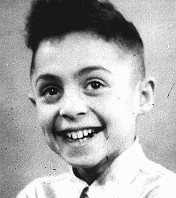
-
Adolphe Arnold
ID CardAdolphe was born to Catholic parents in Alsace when it was under German rule. He was orphaned at age 12, and was raised by his uncle who sent him to an art school in Mulhouse, where he specialized in design. He married in the village of Husseren-Wesserling in the southern part of Alsace, and in 1930 the couple had a baby daughter. In 1933 the Arnolds moved to the nearby city of Mulhouse. 1933-39: Adolphe worked in Mulhouse as an art consultant for one of France's biggest printing factories. When he wasn't…
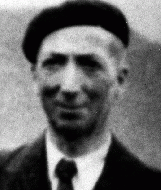
-
Ruth (Huppert) Elias
ID CardRuth grew up in Moravska Ostrava, a city in the region of Moravia with the third-largest Jewish community in Czechoslovakia. When Ruth was a child her parents divorced. She and her sister, Edith, moved in with their paternal grandmother and then with their uncle, but they kept in close contact with their father. Ruth trained to be a pianist and hoped to attend a musical academy in Prague. 1933-39: In March 1939 Bohemia and Moravia were occupied by the Germans and declared a German protectorate. That fall,…
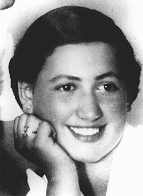
-
Jacob Wasserman
ID CardJacob was the eldest of three sons born to religious Jewish parents in the city of Krakow. His father was a flour merchant. The Wassermans spent summer vacations near Proszowice at a farm owned by their grandfather, who also ran a flour mill. 1933-39: In March 1939, at the age of 13, Jacob celebrated his bar-mitzvah. That summer, his family vacationed as usual at his grandfather's farm. They returned to a nightmare. Krakow had been occupied by the Germans on September 6. Jews were not allowed to walk on…
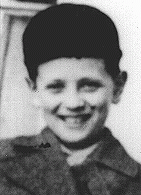
-
Hersh Gordon
ID CardHersh was born to a Jewish family in Kovno, the capital of independent Lithuania. Hersh's father was a mechanic in a textile factory, and his mother had worked as a hat designer until he was born. The Gordons lived on the first floor of Hersh's grandfather's apartment building. Eight-year-old Hersh was in the third grade at public elementary school. 1933-39: In the summers Hersh and his mother would go to his Aunt Ettel and Uncle Abraham in a small town not far away. They'd take a boat down the river to…
